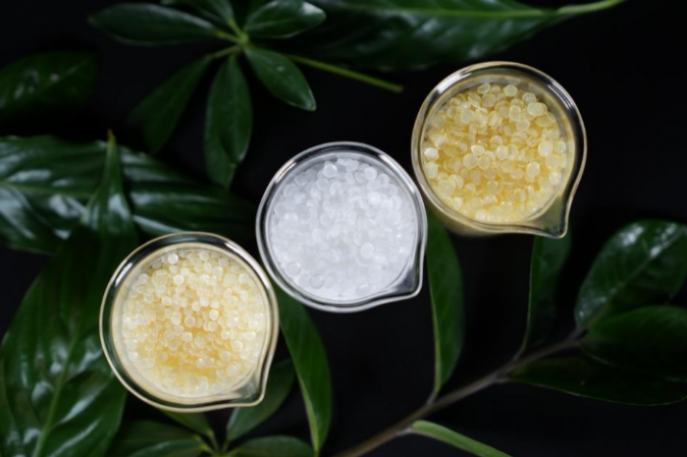Petrochemicals
Kolon Industries achieves certification for eco-friendly petroleum resins
The S.Korean company plans to expand the ISCC PLUS certification for petroleum resin products at other plants
By Mar 27, 2023 (Gmt+09:00)
1
Min read
Most Read
LG Chem to sell water filter business to Glenwood PE for $692 million


Kyobo Life poised to buy Japan’s SBI Group-owned savings bank


KT&G eyes overseas M&A after rejecting activist fund's offer


StockX in merger talks with Naver’s online reseller Kream


Mirae Asset to be named Korea Post’s core real estate fund operator



Kolon Industries Inc., a Korean manufacturer of chemical and textile products, announced on Monday that it has become the first company in the domestic industry to receive International Sustainability & Carbon Certification PLUS (ISCC PLUS) for three eco-friendly petroleum resin products based on renewable raw materials such as bio-naphtha and pyrolysis oil naphtha from waste plastics.
The ISCC PLUS is a globally recognized certification system that ensures the sustainability and greenhouse gas emissions reduction of various products, including bio-based materials and products made from recycled materials. It is a voluntary certification that covers the entire supply chain, from raw materials to finished products, ensuring traceability and transparency in the production process.
A key feature of the certification is that it tracks and manages sustainability standards across the entire supply chain, from raw materials to finished products.
The certification system is highly regarded for its compliance with the European Union (EU) Renewable Energy Directive. Kolon Industries' three eco-friendly certified products are C5 petroleum resin, C9 petroleum resin and hydrogenated petroleum resin, produced at the Ulsan plant.
C5 and C9 petroleum resins are mainly used in industrial adhesives, while hydrogenated petroleum resin is commonly used in adhesives for hygiene products and tire additives.
Following this certification, the company plans to gradually expand the ISCC PLUS certification for petroleum resin products produced at its Yeosu and Daesan plants later this year.
Write to Seo-Woo Jang at suwu@hankyung.com
More to Read
-
 Chemical IndustryKolon Industries to make 100% plant-based eco-friendly plastic
Chemical IndustryKolon Industries to make 100% plant-based eco-friendly plasticMar 22, 2023 (Gmt+09:00)
1 Min read -
 Hydrogen economyKolon Industries showcases hydrogen fuel cell materials at Tokyo Expo
Hydrogen economyKolon Industries showcases hydrogen fuel cell materials at Tokyo ExpoMar 16, 2023 (Gmt+09:00)
1 Min read -
 Fiber & TextileKolon Industries posts strong Q2 results with growth in all key areas
Fiber & TextileKolon Industries posts strong Q2 results with growth in all key areasAug 04, 2021 (Gmt+09:00)
2 Min read
Comment 0
LOG IN


